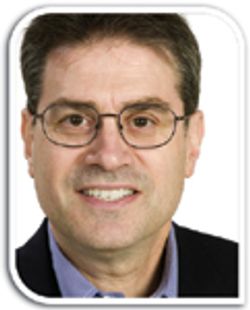CSR and Sustainability in the News
PTSM: Pharmaceutical Technology Sourcing and Management
A roundup of developments in corporate social responsibility and sustainability from the bio/pharmaceutical industry, its suppliers, and other private and public organizations.
The Association of Corporate Contributions Professionals (ACCP) and LBG (the London Benchmarking Group) have embarked on an 18-month pilot program to improve companies’ ability to measure the impact of corporate community investment.Through this initiative, 12 ACCP member companies will learn the LBG framework and its impact measurement tools. Participants will also share their own experiences and best practices to help further develop tools and resources to assist in measuring the impact of community investment. The pilot, focused on the LBG measurement model, launched on Nov.30, 2011. Over the course of the 18-month program, a series of intensive workshops will take place applying the model, which was adopted by The Dow Jones Sustainability Index as its assessment criteria for measuring corporate community investment. As part of the program, a summary report will be jointly developed by ACCP and LBG upon completion of the pilot and shared with ACCP and LBG members. ACCP and LBGs’ combined global scope includes more than 375 member corporations.
In a recent survey conducted by Bayer, American women entering college are the best prepared academically to successfully graduate with a science, technology, engineering, and mathematics (STEM) degree (82%), but often do not graduate with a STEM degree. The Bayer Facts of Science Education XV survey polled 413 STEM department chairs at the country’s leading research universities, The survey asked the chairs, who are largely male (87%) and Caucasian (88%) to shed light on the undergraduate environment in which today’s female and underrepresented minorities (URM , African-American, Hispanic, and Native-American) STEM students make their career decisions. Key survey results from the STEM chair respondents were:
- More than one-third (37%) give their institution a “C” or below for retaining and graduating URMs.
- Eight-four percent believe the issue of recruiting and retaining women and URM STEM undergraduates is important to their institution’s chancellor/president. Sixty-nine percent say the issue has reached a point where it needs to be addressed by the highest institutional leadership, including trustees and regents, presidents, provosts, deans, and department chairs.
- One third (33%) report their colleges have in place a comprehensive STEM diversity plan with recruitment and retention goals.
- Seventy-one percent believe their STEM departments need to significantly increase the academic support they provide STEM students, including women and URMs, to increase retention.
- One-third (33%) say their URM students, given similar academic preparation as their other majority students, are less likely to graduate with STEM degrees.
- STEM department chairs report underrepresentation of URM students in both introductory (77%) and upper/major (83%) level STEM courses; only 16% of the STEM degrees from respondents’ departments will be granted to URMs.
- Roughly two-thirds report no female underrepresentation in STEM introductory (64%) and upper/major (60 percent) courses, they also say their departments grant more STEM degrees to males (59%) than females (42%).
GlaxoSmithKline and Help for Heroes have formed a new partnership to help support injured British armed forces personnel successfully transition back into civilian life. The partnership will focus on the creation of a specialist Wellness Center at Tedworth House, a Personnel Recovery and Assessment Center located in Wiltshire, United Kingdom. As part of its program of charitable support in the UK, GSK has pledged to donate £1 million ($1.5 millioni) to Help for Heroes over five years to be used toward the initial construction and the ongoing running of the new Phoenix Wellness Center. At full capacity, the center, due to open in mid-2012, will deliver health, sport, and exercise programs to help over 1000 servicemen and women each year achieve their individual physical and psychological recovery goals. GSK will also provide pro-bono support in the form of know-how and expertise and will offer GSK employees volunteering opportunities with Help for Heroes as part of a broader partnership between the two groups.
UL Environment, a business unit of UL (Underwriters Laboratories), has launched its Sustainability Quotient (SQ) program, a system of assessing, rating, and certifying the sustainability initiatives of corporations at an enterprise level. The SQ program is based on a series of auditable standards, including UL 880: Sustainability for Manufacturing Organizations, with has been released, and UL 881: Sustainability for Service Sector Organizations, which is in development. These standards assess corporate sustainability initiatives in five domains: governance for sustainability, environment, work force, customers and suppliers, community engagement, and human rights.
In the coming months, UL Environment expects to announce the results of its work with additional organizations, as well as the first SQ qualified sustainability practitioners and business applications that will be available to support companies as they engage with the SQ program. By completing an SQ Readiness Assessment, a company will be able to gauge its readiness for certification against one of UL’s enterprise-level standards. Once the assessment is completed, the company will receive a detailed report indicating gaps between the enterprise's existing program and the requirements of the specific UL standard for purposes of certification. The UL's SQ Analytics will offer detailed benchmark and gap analysis of companies’ sustainability initiatives as measured against a selected UL standard for the purpose of preparing for integration of sustainability efforts related to a merger or acquisition or for targeted risk mitigation. The SQ Supply Chain Service provides support to enterprises that seek to use the SQ program and standards as a foundation for how they interact with their supply chain.


